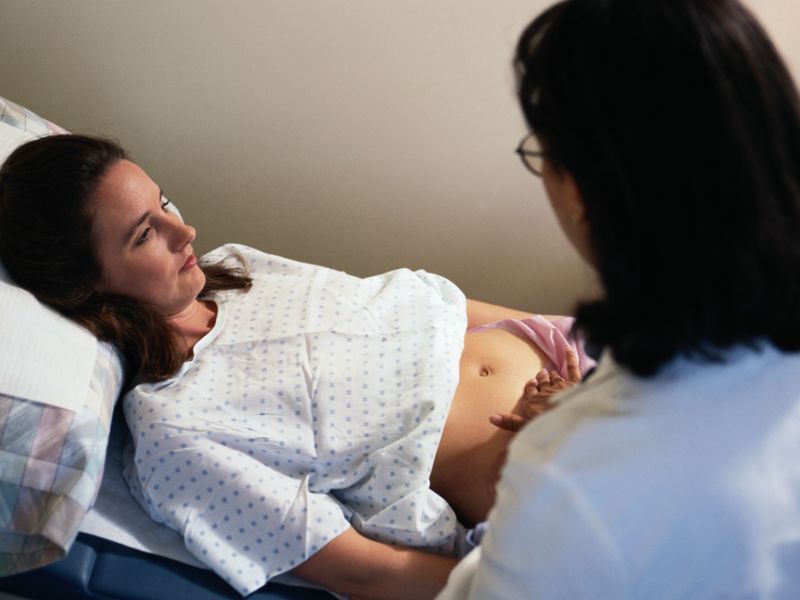
Wednesday, June 14, 2017

WEDNESDAY, June 14, 2017 (HealthDay News) -- Children whose moms have any type of fever during pregnancy may have slightly increased odds of developing an autism spectrum disorder, a new study suggests.
The large study found that one episode of fever in the second trimester might increase the risk for autism by 40 percent. Several bouts of fever after the twelfth week of pregnancy could raise the risk threefold, researchers reported.
"Fever is a response to a wide range of infections, and it is common during pregnancy," said lead researcher Dr. Mady Hornig. She's an associate professor of epidemiology at Columbia University's Mailman School of Public Health in New York City.
But she pointed out, "The absolute risk is low. The vast majority of women who get an infection with fever, even flu, are not going to end up having a child with autism."
Hornig also cautioned this study cannot prove that a fever during pregnancy causes autism, only that there appears to be an association.
The researchers also cannot tell what it is about fever that might have this effect. Hornig speculated that it might involve the body's reaction to a fever-causing infection that also has an effect on fetal brain development.
"There is something in the mother's immune response that may increase the risk for the infant," Hornig said. "But it's not in every mother. We don't think this is a pathway for autism. We don't think it's the only way autism is triggered in children."
Surprisingly, the researchers didn't see much reduction in the fever-associated risk when women took acetaminophen (Tylenol), Hornig said. "We anticipated that we would have seen more of an effect," she said.
Thomas Frazier, the chief science officer of Autism Speaks, said, "Unfortunately, the study is not able to determine exactly what is driving this relationship -- the fever itself, any maternal infection, or specific types of infections."
For the study, Hornig and colleagues collected data on nearly 100,000 children born in Norway between 1999 and 2009.
Among these kids, nearly 600 were diagnosed with autism spectrum disorder.
Mothers of almost 16,000 children reported having one or more fevers during pregnancy. That rate -- 16 percent -- is similar to the rate of fevers reported by pregnant women in the United States, Hornig said.
The researchers found that the risk for autism was increased 34 percent when mothers reported fever at any time during pregnancy.
Breaking it down by trimester of pregnancy, the rate of autism increased 34 percent when a mother had a fever in the first trimester, and by 40 percent for a fever in the second trimester. By the third trimester, a fever in the mother was tied to a 15 percent higher risk of autism, the study found.
The risk increased with the number of bouts of fever. The risk was 1.3 times higher with one or two fevers after the twelfth week of pregnancy. And, for women who had three or more fevers after the first trimester, the risk of autism was more than three times higher, the researchers reported.
In addition, women who took acetaminophen for fever in the second trimester only slightly reduced the odds their child would have autism, the researchers found.
Among mothers who took ibuprofen (Advil), however, no cases of autism were reported. However, the researchers couldn't tell whether the drug reduced the risk for autism, because only a few women took ibuprofen for fever, Hornig said.
Reacting to the study, Dr. Trevor Resnick, a pediatric neurologist at Nicklaus Children's Hospital in Miami, said that these findings are not something that's unexpected.
"Autism is an abnormal brain function. Abnormal brain development can be caused by many things including genes and certain diseases that affect the brain," Resnick said.
If there is an injury to the brain during its development, it can also predispose a child to autism, he said.
"But it doesn't have to be autism, it could be epilepsy, or a brain malformation, depending on which virus it is and how it affects brain development. So it's no stretch of the imagination to say that there may be a virus that affects brain development and results in autism," Resnick said.
It isn't clear, however, if it's the fever that's predisposing the baby to autism or the cause of the fever or the body's immune response to the infection, Resnick said.
"Women should not be freaked out," he said. "Some women may be unlucky enough to get the wrong virus at the wrong time, and they are at risk. Predominantly, women who get viruses have babies that are fine," Resnick said.
The report was published June 13 in the journal Molecular Psychiatry.
SOURCES: Mady Hornig, M.D., associate professor, epidemiology, Columbia University, Mailman School of Public Health, New York City; Trevor Resnick, M.D., pediatric neurologist, Nicklaus Children's Hospital. Miami; Thomas Frazier, Ph.D., chief science officer, Autism Speaks; June 13, 2017, Molecular Psychiatry
HealthDay
Copyright (c) 2017 HealthDay. All rights reserved.
News stories are written and provided by HealthDay and do not reflect federal policy, the views of MedlinePlus, the National Library of Medicine, the National Institutes of Health, or the U.S. Department of Health and Human Services.
- More Health News on
- Autism Spectrum Disorder
- Pregnancy





























.png)











No hay comentarios:
Publicar un comentario